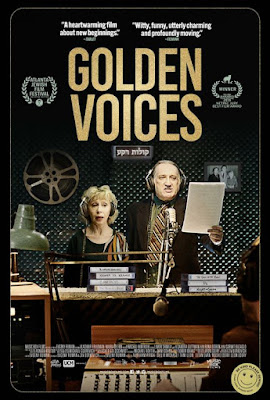Eugene (formerly Yevgeny) Yelchin won a Newbery Honor for his children’s novel, Breaking Stalin’s Nose and helped storyboard everybody’s favorite commercial: Coca-Cola’s Christmas polar bears. Frankly, it makes sense he would have an affinity for the big white bears from his time in Siberia. He first went there voluntarily to work for a theater company (and avoid service in Afghanistan), but stayed against his will in a state “mental hospital.” Getting from there to America was quite a story, which he tells and illustrates in I Wish I Didn’t Have to Tell You This: A Graphic Memoir, which goes on-sale today.
While still a theatrical design student, Yelchin loved his city of Leningrad, but he was drawn to the underground art scene. He was also vaguely conscious his Jewish heritage could be considered a liability, but he and his stern mother and cranky grandmother were absolutely not Refuseniks. Indeed, their attitude towards such dissidents were quite Soviet, until Yelchin meets Libby, a visiting American student through his friend Mark. Much to his surprise and confusion, she is on a mission to help the Refusenik community.
It is awkward between them, because of the language barrier and their conflicting loyalties and values, but the chemistry just keeps pulling them closer. Yelchin also starts to question the Soviet system when he notices all the KGB surveillance focused on them. However, he truly loses faith when the KGB (or perhaps just the regular militia) kill Mark after he too declares his Refusenik intention to immigrate.
At this point, Yelchin can sufficiently read between the lines of Party propaganda to know he wants no part of the war in Afghanistan, so he accepts a job with a Siberian theater company, whose director has KGB connections. Yet, life on the outskirts of a plutonium enrichment facility entails its own dangers. The state also completely censored mail between him and Libby, so Yelchin grows increasingly isolated.
Yes, the tragically late actor Anton was Yelchin’s nephew, but the events of this graphic novel memoir predate him. Instead, they capture the turmoil and austerity of the late Brezhnev and early Andropov years (of course, he hardly had time to enjoy any “late years” as General Secretary). Consequently, Yelchin provides a revealing Soviet-era perspective on the Afghanistan War and its “Cargo 200” stigma, the Refusenik experience, anti-Semitic prejudice in general, and the horrors of Soviet sanatoriums.
Yet, his graphic memoir is also a highly appealing love story, especially since it is entirely free of cheap sentimentality. Despite the initial language differences, Yelchin and Libby are always brutality honest with each other. Indeed, that seems to be part of their unique chemistry.



